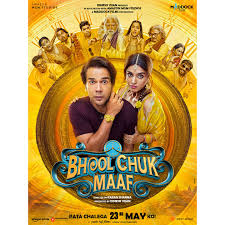Understanding ‘Bhool Chuk Maaf’ and Its Relevance Today

Introduction
The phrase ‘Bhool Chuk Maaf’ translates to ‘forgive and forget’ in English, encapsulating a vital moral within many cultures, especially in South Asian societies. With a growing emphasis on mental health and interpersonal relationships, the importance of forgiveness and understanding one’s mistakes has never been more relevant. This concept serves as a guiding principle in maintaining harmonious relationships and finding personal peace.
Contextual Background
The phrase ‘Bhool Chuk Maaf’ often emerges in discussions surrounding reconciliation, particularly within familial and community contexts. Its roots can be traced back to cultural traditions that value humility and empathy. Within the fast-paced modern world, where rifts can easily emerge due to misunderstandings or conflicts, this phrase offers a reminder of the strength found in forgiveness.
Current Events Highlighting Forgiveness
Recent events have amplified the discussion on forgiveness. Following the COVID-19 pandemic, many communities have experienced profound grief and loss. Emerging reports highlight an increase in community initiatives focusing on reconciliation, showcasing the necessity of embracing ‘Bhool Chuk Maaf’ in healing processes. Various organisations and leaders are promoting dialogue sessions aimed at mending relationships strained by various societal challenges. Furthermore, mental health experts have emphasised that forgiveness is integral to personal healing, reinforcing the idea that forgiving others can also lead to freeing oneself from prolonged emotional pain.
Implications for Society
As the dialogue surrounding mental well-being continues to evolve, integrating the notion of ‘Bhool Chuk Maaf’ into our everyday lives can be transformative. It encourages individuals to let go of grudges and promotes resilience in communities. Educational institutions and workplaces are increasingly incorporating conflict resolution strategies that highlight the essence of forgiveness as a means to foster inclusive and supportive environments.
Conclusion
‘Bhool Chuk Maaf’ serves not only as a cultural maxim but also as a powerful tool for personal and societal transformation. As we advance through times fraught with conflict and misunderstanding, embracing the principles embedded in this phrase may lead to improved mental health outcomes and stronger community bonds. Ultimately, learning to forgive can pave the way for personal freedom and deeper connections, making ‘Bhool Chuk Maaf’ a timeless lesson for generations to come.









